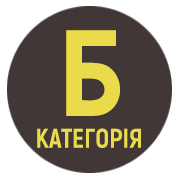CONVERSATIAONAL ANALYSIS AS A TOOL OF DRAMA DISCOURSE RESEARCH (BASED ON THE DRAMAS OF THE BRITISH PLAYWRIGHTS OF THE 20TH CENTURY)
DOI:
https://doi.org/10.32782/folium/2023.1.7Keywords:
conversational analysis, interaction, drama, drama discourse, turn-takingAbstract
The article examines the texts of dramas of British playwrights of the 20th century through the prism of the methodology of conversational analysis (CA). CA is a relatively new branch of Pragmatics and Sociolinguistics that investigates the features of speech interaction: the structure and formal properties of speech, which help interlocutors to interpret each other’s behaviour, language means at the empiric level, which put in order and control the sequence of expressions of interlocutors. CA developed from the theories of social organization of ethnomethodology by Harold Garfinkel. Sociologists and linguists Harvey Sacks, Emanuel A. Schegloff, and Gail Jefferson became the founders of the new research method of a dialogue (polilogue). Basic methodical principle of CA is collecting and fixing of the material in the situations of a real communication in everyday life. As a result of empiric data processing the categories of CA were developed: turn-taking, reparations, overlaps, sequences, adjacent pairs, and preferences. Turn takings are the base element of conversation organization. They are wellorganized utterances. A change of interlocuters is obligatory for turn-taking. They are also characterized by the presence of structural and allocational components. The first determines the volume and form of an utterance, the second is responsible for a choice of the next speaker. The sequence of utterances in a conversation is set on rules according to which a current interlocuter elects the following one. This is marked in a relevant transit point by means of one or a number of linguistic, paralinguistic or nonverbal facilities. It is also possible that another participant of a conversation starts talking on their own. If no one is willing to talk, a current interlocutor may continue talking. Nowadays conversationalists study not only real-life (domestic or institutional) but also written texts, that may be a representation of real-life talks (those which contain a direct address to the interlocutor or audience, have the system of turn-taking including more than one interlocutor). Such method of research can be applied to the analysis of drama discourse organization. The text of a drama is built, mainly, on the principle of exchange remarks between characters, and it is the interaction that is a global means of characters description, and action development, and also a means of the main idea expression. All the above mentioned makes it possible to apply CA to drama discourse research.
References
Kopytko, R. Against rationalistic pragmatics. Journal of Pragmatics. 1995. № 23. P. 475–491.
Kopytko, R. From cartesian to non-cartesian pragmatics. Journal of Pragmatics. 1995. № 33. P. 783–804.
Garfinkel, H. Ethnomethodological studies of work. New York : Routledge, 2005. 204 p.
Garfinkel, H. Studies in Ethnomethodology. Englewood Cliffs : Prentice-Hall, 1967. 304 p.
Heritage, J. Garfinkel and ethnomethodology. Cambridge : Polity Press, 1984. 336 p.
Hilbert, R.A. The classical roots of ethnomethodology: Durkheim, Weber and Garfinkel. The University of North Carolina Press, 2001. 278 p.
Goffman, E. Interaction ritual: Essays in faceto-face behavior. New Jersey : Transaction Publishers, 2005. 270 p.
Goffman, E. The representation of self in everyday life. Gloucester : Peter Smith Pub Incorporated, 1999. 259 p.
Sacks, H. Lectures on conversation. Oxford : Blackwell, 1995. 818 p.
Hepburn, A., Bolden G.B. Transcribing for social research. SAGE Publications, London, 2017. P. 206
Gefferson, G. Two explorations of the organization of overlapping talk in conversation. Tilburg : Tilburg University, Department of Language and Literature, 1982. 61 p.
Schegloff, E. Discourse, pragmatics, conversation analysis. URL: http://www.sscnet.ucla.edu/soc/faculty/schegloff/pubs/index.php?action=abs&file_id=19 (дата звернення: 15.12.2022).
Schgegloff, E. Sequence organization in interaction: A primer in conversation analysis. New York : Cambridge University Press, 2007. 300 p.
Mondada, L. Multiple Temporalities of Language and Body in Interaction: Challenges for Transcribing Multimodality. Research on Language and Social Interaction, 51:1, 2018. P. 85–106.
Deppermann, A. Social Actions. In M. Haugh, D. Kádár, & M. Terkourafi (Eds.), The Cambridge Handbook of Sociopragmatics. Cambridge : Cambridge University Press, 2021. Р. 69–94.
Couper-Kuhlen, E., Selting, M. Interactional Linguistics: Studying Language in Social Interaction. Cambridge University Press, 2017. P. 620.
Ogden, R. The Phonetics of Talk in Interaction. In Knight, Rachael-Anne; Setter, Jane (eds.). The Cambridge Handbook of Phonetics. 2022. Р. 657–681.
Bowles, H. Storytelling and drama: Exploring narrative episodes in plays. Amsterdam : John Benjamins Publishing Company, 2010. 216 p.
Bowles, H. The contribution to the study of literary dialogue. URL: http://www.novitasroyal.org/Vol_5_1/bowles.pdf (дата звернення: 15.12.2022).
Culpeper, J., Short, M., Verdonk, P. Exploring the language of drama: From text to context. London : Routledge, 1998. 183 p.
Herman, V. Dramatic discourse: Dialogue as interaction in plays. London : Routledge, 1998. 331 p.
Mandala, S. Twentieth-century drama dialogue as ordinary talk. Adelshot : Ashgate Publishing Limited, 2007. 141 p.
Person, R. In conversation with Jonah: Conversation analysis, literary criticism, and the Book of Jonah. Sheffield : Sheffield Academic Press Ltd, 1996. 204 p.
Beckett, S. Waiting for Godot. London : Faber and Faber Limited, 1998. 98 p.
Churchill, C. Blue heart. London : Nick Hern Books, 1997. 73 p.
Harwood, R. Equally divided. London : Faber and Faber Limited, 1999. 156 p.
Jacobs, W.W. The monkey’s paw. Tales of Terror. Boston : Houghton Mifflin Company, 1995. P. 5–32.
Macdonald, S. When I was a girl, I used to scream and shout … London : Faber and Faber Limited, 1995. 355 p.
Modern English Drama / сост. Ю. Фридштейн. 1984. 480 с.
Levinson, C.S. Pragmatics. New York : Cambridge University Press, 1989. 240 p.











